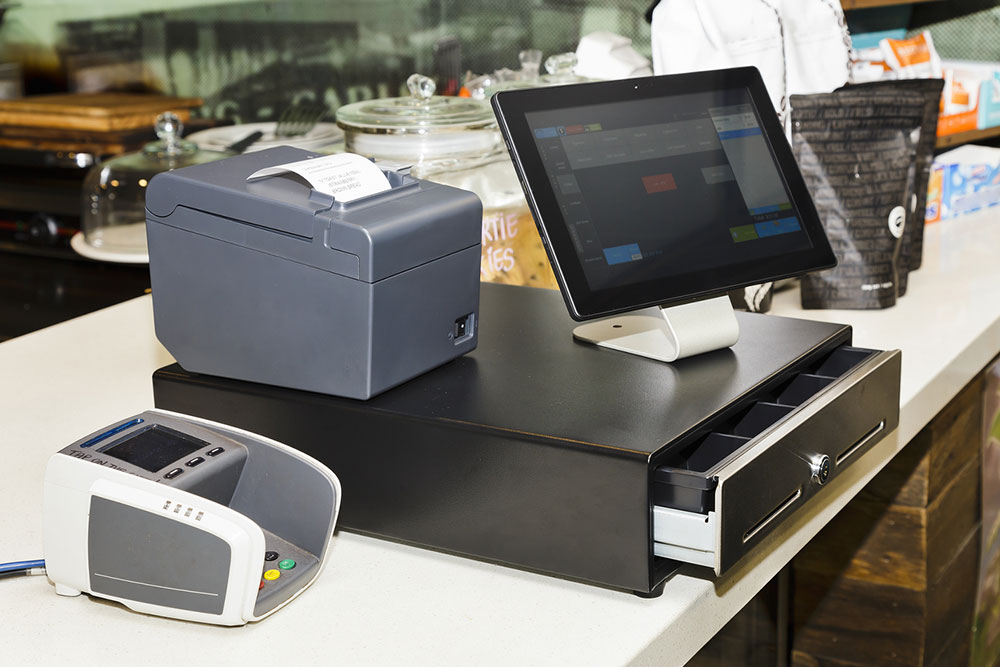11 advantages of using POS systems

Over the years, a POS (Point of Sale) system has replaced traditional cash registers. This technological marvel combines software and hardware with implementations in business operations. The hardware could include a scanner, physical terminal, printer, computer, and other devices. These work with software to track and organize business information. A POS system brings with it multiple benefits for small and large businesses. Here are 11 notable advantages of installing this system.
Error reduction
One of the most prominent advantages of a POS system is that it can reduce the errors that usually occur in manual processes. For instance, an individual who conducts transactions manually by cash might sometimes get minute calculations incorrect. These mistakes could become quite a hassle when one needs to account for the inventory at the end of the month or when it’s time for an audit. The POS system ensures accurate results with minimal error if used correctly.
Superior inventory management
The POS system makes it easy to track the inventory of any business, such as a retail store. It enables one to manage their inventory in real time and learn the number of products owned over a specific period. When a store receives inventory in its catalog, it needs to scan the items and enter the quantities of each product into the POS software. When the items are sold, they are directly deducted, so one is aware of the remaining stock.
Identification of sales trends
A POS system can also identify common sales trends or seasonal changes in product demand. This feature allows businesses to track and organize their stock levels in advance to ensure they have sufficient to meet customer demand and maximize earnings. It also allows merchants to identify the areas where there is unnecessary overspending and better manage their budgets.
Price consistency management
If a business owns multiple stores in various locations, it could become tedious to maintain price consistency. A POS system may help in this situation by letting the business access a digital database to amend the price of a product and automatically apply it across all locations. On the contrary, a business could also slash the prices of various products at select stores to help attract customers to that location and build a better client base.
Faster transactions
POS systems help employees scan a code on the products a customer wants to buy and automatically calculates the price. The invoice is sent to the customer via email or printed on the spot on receipt paper. A customer can pay by cash, debit, or credit card based on the integrations and terminal. This feature helps reduce waiting time while ensuring the employees are more efficient in completing transactions.
Improved customer management
A POS system allows a business to document customer information. The data may include the user’s phone number, purchases, name, and email. Storing customer data gives one a better overview of the target market and customer groups, such as new or returning shoppers. A business could also use this data to send promotional messages and incentivize customers to visit the shop more often or build customer loyalty. The presence of reliable customer data will allow one to understand the target customers thoroughly and make better business decisions.
Positive customer experiences
The system helps address customer expectations by offering accurate, fast, and efficient services. Combining these three components could help ensure the users are more satisfied with their experience, making them more likely to return to the store. Better customer satisfaction may contribute to building store loyalty and ultimately improve profits.
Next-gen security
A company’s database security is crucial as it may store sensitive customer and business information, including addresses, product designs, and financial transactions. A POS system can help protect the data from potential theft. Most devices offer user authentication, which reduces the risk of malicious intrusions in the system. An administrator may also be able to grant or block access to specific individuals. Additionally, one could use a cloud-based system to back up and keep their data safe in case of accidental corruption or deletion.
Advanced employee management
The lack of tangible data can make it daunting to track every employee’s productivity. A POS system overcomes this obstacle. It allows one to see the sales figures per employee, the hours worked, and the sales per time slot. With the help of this information, one can identify the employees who perform well and check their peak hours in the store. It may also help keep an eye on those who do not do well so that one can create training plans to help them improve.
Better customer service
Good customer service is key to retaining customers. Luckily, businesses can integrate live chat software into their POS systems to help with customer support. This feature helps confirm appointments, provides customers with status updates, and provides several other options to boost a business’s customer service capabilities.
Enhanced company image
Integrating a POS system in the store gives customers a better perception of the business. This is mainly because of the reduced wait times, faster transactions, and quicker scanning of items. The hardware and software can create a significant level of trust, reputation, and credibility for the business. Ultimately, the customers may recommend the company to relatives, which could help expand customer reach organically.



